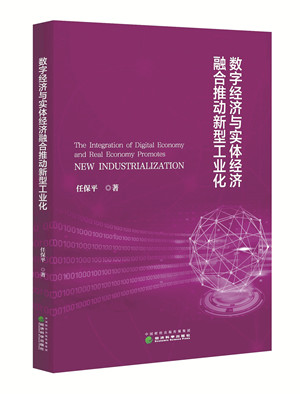


New industrialization in China

The Integration of Digital Economy and Real Economy Promotes New Industrialization
In 2002, the report to the 16th CPC National Congress proposed “persisting in using IT to propel industrialization, which will, in turn, stimulate IT application, blazing a new trail to industrialization featuring high scientific and technological content, good economic returns, low resources consumption, little environmental pollution, and a full display of advantages in human resources.” The report to the 20th CPC National Congress went further, including the basic achievement of new industrialization into its overall development objectives for realizing basic socialist modernization by 2035.
The concept of new industrialization in the new stage has evolved since its original proposal to include several new dimensions. First, new drivers for industrialization have been articulated, as emerging production technologies, such as digitalization, intelligence, and sustainability, are becoming increasingly mature. Digital technology, in particular, represents a transformative force driving new industrialization in this era. Second, the goals of industrialization have shifted. A weak industrial foundation has long been a key issue restricting China’s industrial development, so upgrading the industrial base, modernizing industrial chains, and enhancing overall industrial competitiveness have become key priorities in the new development stage. Finally, the pathways to industrialization have also changed. The focus has shifted from primarily relying on the scale expansion of factor inputs and is instead centered on innovation-driven development, optimizing industrial layouts, and structural improvement.
The Integration of Digital Economy and Real Economy Promotes New Industrialization, by Ren Baoping, a distinguished professor from the School of Digital Economics and Management at Nanjing University (NJU), concentrates on new industrialization through digital and real economic integration in the context of the global industrialization process and the latest development trends of the digital economy.
The book is distinguished by three aspects. First, it situates new industrialization within the broader context of global industrialization trends, China’s economic growth in the new stage, and the rapid development of the digital economy. Second, the book integrates the principles of high-quality development throughout the entire process of new industrialization, aligning with the scientific connotations of China’s new development philosophy. It places particular emphasis on how intelligent transformation, driven by the latest generation of digital technologies, is reshaping the production modes of the real economy, enhancing overall economic efficiency, and boosting competitiveness. Third, the book examines the strategic positioning, goals, priorities, and tasks of promoting new industrialization through the lens of digital and real economy integration. Ren further explores the specific institutional mechanisms for deepening the integration from the consumption sector to the production sector, from production to R&D, and from within industries to the entire industrial ecosystem.
Wu Qiang is a professor from the Business School at NJU.
Editor:Yang Lanlan
Copyright©2023 CSSN All Rights Reserved